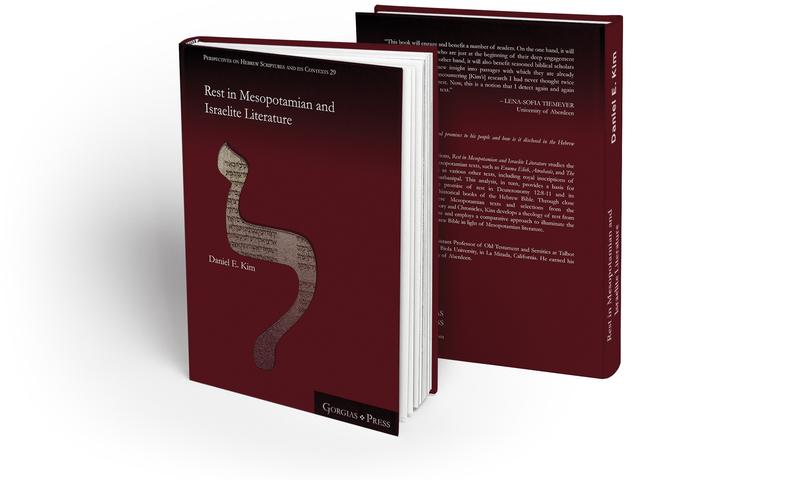People seek peace and prosperity, refreshment and flourishing. Perhaps the relentless search for rest comes from the human condition, or maybe it is even a core part of human identity. History shows that throughout the centuries humankind has sought crown and government to bring anew what is believed the right of all. Both nations and the individuals that make the collective embark time and again on what seems to be an endless journey toward a state of affairs that would be the final culmination of all the war and strife that were endured for it. Indeed, the irony of the cycle of war and peace plagues us all ŌĆö and, while nations have contended for it, individuals also search for rest on a personal level, foraging through life in the pursuit of happiness.
Rest, Defined
In the Mesopotamian Literature (ML), the divine provision of rest to another deity is rest from labor. Human beings, however, are not offered this kind of rest from the gods. Indeed, very little is recorded in the ML that depicts a divine provision of rest of any kind to human beings. The only hint of rest to humans from a deity comes in the form of a curse in a treaty with Esarhaddon: the gods would allow the unrest of politico-military oppression for breaking a treaty. This aspect of rest is similar to the rest found in the Deuteronomistic History (DH) and Chronicles (the label ŌĆ£Deuteronomistic HistoryŌĆØ refers to the books of Joshua, Judges, Samuel and Kings). First promised in Deuteronomy 12:8ŌĆō11, rest (ūĀūĢų╝ūŚųĘ and ū×ų░ūĀūĢų╝ūŚųĖūö) is often depicted as rest from warfare and conflict with enemies. The divine provision of rest from enemies in the DH has a specific purpose: rest from enemies is rest for worship and obedience. This is also borne out practically since rest from war is required in order to have the time and resources to build a temple of rest, in which worship takes place and loyal obedience is pledged. Thus, the state of rest (or unrest) is a strong indicator of the state of IsraelŌĆÖs divine relationship. Unrest is caused by disobedience, and in the DH unrest has the further purpose of ŌĆ£testingŌĆØ IsraelŌĆÖs loyalty (Judg. 3:1).
Cyclical Nature of Rest
One remarkable feature of rest is its cyclical nature. In the ML, rest earmarks what John Walton calls ŌĆ£the great symbiosis.ŌĆØ Offerings appease the gods, but deities are unable to rest or sleep when ŌĆ£noiseŌĆØ is created by lament (humans) or rebellion (lower gods). The disruption of divine rest creates cycles of rest. That deities are susceptible to noise and can be caused unrest by people is a view decidedly not shared in Israelite literature. This is prominently featured in 1 Kings 18:20ŌĆō40, and ElijahŌĆÖs taunt is given even greater polemic edge when viewed with an understanding of the underlying clash of opposing theologies of rest. YHWHŌĆÖs rest cannot be affected by people: he can be neither given rest nor disturbed of his rest.
Of course, cycles of rest also exist in the Old Testament, but they do not involve GodŌĆÖs rest. The portrayal of YHWH is vastly different from the tired and angry Erra in The Poem in this regard. Cycles of rest and unrest are only of the peopleŌĆÖs own, caused solely by disobedience. Even in the DH, where the achievement of rest is primarily viewed as a one-time promise and fulfillment, cycles of rest are still present, mostly in Judges and stamped by ▓§│¾▓╣╠ä▒ń▓╣│┘ (ū®ūüųĖū¦ųĘūś). The most striking feature of rest in Chronicles is the way it portrays a new dawn of rest and a new opportunity for a right relationship with YHWH. The Chronicler reorients the reader back to a time before the golden age of the monarchy by shaping the rest motif at the end of the narrative to resemble the book of Judges. Thus, the latter portions of Chronicles and Judges share a unique element: both are concerned with the coming changes in the political landscape and express rest and unrest accordingly.
Eschatological Rest
War and peace inherently intertwine, oscillating back and forth like seasons. In the throes of these cycles, the ancients seem to express a desire for finality ŌĆö an ultimate rest, and these texts exhibit a distinct longing for a final rest. Eschatological elements are present in Enuma Elish, Atrahasis, and The Poem of Erra. In Israelite literature, similar elements are discernable in Judges and Chronicles. These cycles of rest naturally engender a hope for a different future ŌĆö perhaps a final, ultimate cycle of rest.
Adapted from Rest in Mesopotamian and Israelite Literature. Perspectives on Hebrew Scriptures and its Contexts 29, by Daniel E. Kim (assistant professor of Old Testament and Semitics). Copyright (c) 2019 by Daniel E. Kim. Used by permission of Gorgias Press.
 51┬▄└“
51┬▄└“

